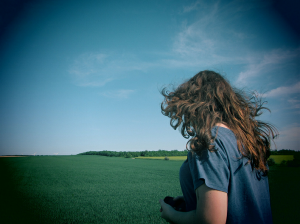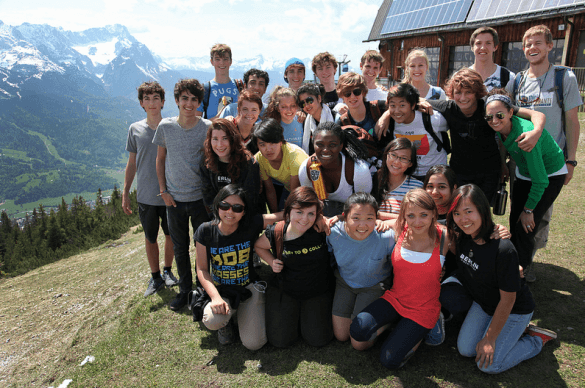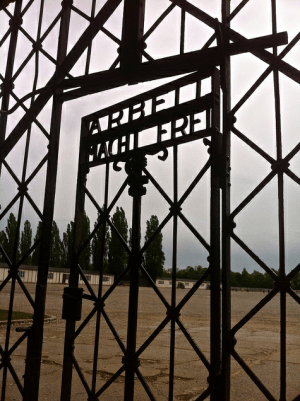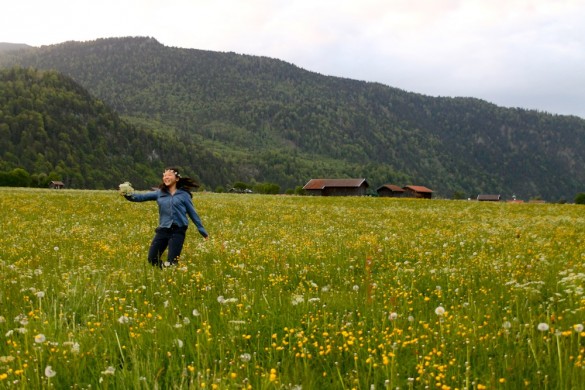As I write this, I'm waiting for our students to return from their weXplore, a five-day excursion that takes students beyond their host city for immersive cultural experiences. For the past two months, we as a school have called Maun, Botswana, our home. It's a small town on the edge of the Okavango Delta and, for many travelers, a doorway into Africa. But Maun is only one perspective, and it...
Read More1. There’s no pity for the wee-dance.

Much to the dismay of everyone who needed a toilet during pitstops, the privilege of relieving oneself costs .70 Euro in addition to the cost of time waiting in a queue. It’s a bit like adding insult to injury because on top of the inevitable queue for the loo, you may have to run back to the bus to find change for your entrance fee!
Granted, some of these pay toilets were worth the cost; the moving and self-disinfecting seats made me feel assured. But, for .70 Euro a head, I wanted marble countertops and warm towelettes with the ever-wafting smell of lilac against a backdrop of singing angels.
As a consolation, I received a .50 Euro voucher on my way out with which I couldn’t purchase a single item from the convenience store. That’s when we decided to combine powers with other voucher-holders to purchase a snack to split amongst 5 people–the minimum needed to reach the cheapest price. This teamwork allowed all parties to get at least one crisp out of the bag before they were gone.
Who knew a pitstop would inspire such decision-making…and math!
2. Contrary to popular belief, it’s not always lightning-fast on the Autobahn.
 Thinking of the Autobahn in Germany usually inspires visions of fast moving cars, roofs down, with the wind whipping the hair back from under the scarves wrapped around women’s heads. Of course, they also are wearing massive sunglasses and bright red lipstick. We traveled this no-limit roadway to and from Munich. While our bus wasn’t traveling at breakneck speed, we did see the blur of some speedy sports cars fly by. The reactions on several faces was, “WHOA! Did you just see that?” Our ride to Munich was the smooth sailing anyone would expect, but our ride back was provided an unexpected twist.
Thinking of the Autobahn in Germany usually inspires visions of fast moving cars, roofs down, with the wind whipping the hair back from under the scarves wrapped around women’s heads. Of course, they also are wearing massive sunglasses and bright red lipstick. We traveled this no-limit roadway to and from Munich. While our bus wasn’t traveling at breakneck speed, we did see the blur of some speedy sports cars fly by. The reactions on several faces was, “WHOA! Did you just see that?” Our ride to Munich was the smooth sailing anyone would expect, but our ride back was provided an unexpected twist.
After leaving a potential rest stop due to a bathroom queue that could have been visible from space, we planned to continue down the Autobahn 5km to reach the next one. We were met with standstill traffic. This mere 5km took a whopping 1+ hours to traverse! At one point, the bus was stopped, parked, and turned off with TGS students unloading to stretch their legs outside. They were not alone.
People were out walking their dogs along the shoulder. There were a number of other motorists running into the nearby field to relieve themselves. They must not have wanted to pay for the toilets.
3. Julie Andrews is easy to channel in the Alps.
We scheduled a side trip from Munich to the Bavarian Alps for a hike up Wank (pronounced “Vank”) Mountain. Located close to the Austrian border, we arrived in the teeny town of Garmisch-Partenkirchen the night before our adventure. Our hostel was situated along a stream and surrounded by soaring mountains. Fresh, chilled air rolled down from the snow-capped peaks into fields of blooming wildflowers.
The bus ride had most students saying, “This is just like the Sound of Music!” Regardless of generation, who can’t be inspired to run through fields with arms opening singing, “The hiiilllsss are aliiivee with the sound of muussiiiccc?” I can admit I was guilty of doing so upon arrival, along with several of the students.
The hike up Wank Mountain took 45 minutes to the base of the trail and then 3 hours to the grassy, sun-filled top. TGS relaxed and had some lunch at the summit, while Lindsay led her newMedia Lab. Students reflected on the jaw-droppingly gorgeous surroundings and overall feeling of accomplishment one gets when tackling new heights. Luckily, a gondola ride on the well-known Wankbahn brought relief to the students’ tired legs back down to the base. The hike also provided for something everyone loves: a quiet, sleepy bus ride back to Munich. Even Julie Andrews would have needed a nap after such an excursion.

4. Fußball is no joking matter.
Back in Munich, we found ourselves at a beer hall hosting a UEFA Championship Final viewing between Bayern München and Chelsea. It was the first time in Championship history in which the host city also had one of the competing teams. Needless to say, Munich was nothing short of a madhouse and provided an in-your-face cultural experience. The atmosphere was indicative of just how passionate the fans are from each of the respective teams.
Most of TGS cheered loudly for Chelsea, while the rest echoed the entire beer hall in favor of Bayern München. In a battle that literally came down to the final penalty kick, Chelsea won, much to the dismay of the entire city. It turned into a very quiet and speedy walk back to the hostel through a thick fog of disappointment.
Chelsea defeated the hometown favorite to win their first ever UEFA Championship, and this legacy won’t soon be forgotten by any football fan. It’s the overall experience that TGSers will recall for ages.
5. Memory lives on.
 We visited Dachau, the first concentration camp constructed after Hitler came to power, to play witness to the power that memory holds when its story is retold.
We visited Dachau, the first concentration camp constructed after Hitler came to power, to play witness to the power that memory holds when its story is retold.
We walked the haunting grounds where thousands of people were imprisoned and killed. Imagery of horrors against humanity were present in our minds but still difficult to fully grasp. The questions of “Why?” and “How?” echoed from our lips. It’s as if the entire place whispers stories, especially through the leaves of the original trees that had to play witness. As they danced in the breeze, all we could hear them saying was, “Listen. Listen. Remember.”
While the two remaining bunk houses are reconstructions, the main museum and crematorium hold original artifacts. Steel rods emerge from the brick where prisoners were hanged by their wrists and beaten by SS guards. Grates opening from the outside show where gaseous chemicals were poured to kill unsuspecting victims in the “shower.” We walked into ovens that have seen more bodies than we can fathom. Dachau was not heavily used for exterminations, but had a share in the numbers tallied at the end of WWII. It provided a poignant glimpse into a past that we do not want to see repeated in the future.
Photography by Joann McPike, Hudson C., Monique Lefebvre, and Lindsay Clark.
